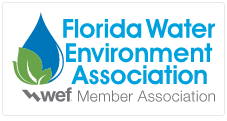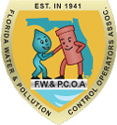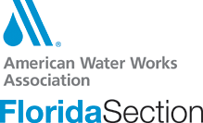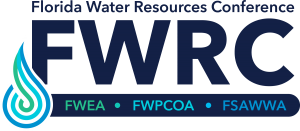Category Archives: Current News
Research Outlines How Climate Change Impacts Water and Wastewater Systems in Rural Communities Across US
The Pacific Institute Livelihoods Knowledge Exchange Network (LiKEN) and Rural Community
Assistance Partnership Inc. (RCAP) has released new research outlining how climate change
impacts are leading to devastating consequences for water and wastewater systems in rural
communities across the United States. The report also introduces an innovative community-centered
framework to assist leaders in rural communities to build equitable water and wastewater systems
that will be resilient to climate change in the future. The framework can inform policies and can be
adapted and scaled to be used in different rural areas.
The report, “Water and Climate Equity in Rural Water Systems in the United States,” highlights
where a concentration of homes lack access to water and sanitation services. The research
emphasizes how legacies of injustice, disproportionate rates of poverty, and insufficient financial and
technical resources in some rural communities create challenges. The report also underscores that
climate change will continue to exacerbate many existing water challenges, including water quality,
affordability, availability, and access, as well as aging infrastructure and disaster recovery.
“Water and climate risks and vulnerabilities tend to cluster in places where racial and financial
inequalities also cluster,” said Dr. Shannon McNeeley, senior researcher and water and climate
equity lead of the Pacific Institute.
“Decision makers must grapple with a series of complex realities when developing strategies to build
resilient water systems that are equitable,” said Laura Landes, associate director of research and
data at RCAP. “It’s critical that solutions in rural communities are rooted in local knowledge and
center the needs and perspectives of local communities.”
“It’s a privilege to listen to the insights of people at the frontlines of these challenges,” said Dr. Betsy
Taylor, executive director of LiKEN. “In many ways, we saw a grim picture, but we also found
remarkable openings for durable solutions rooted in local creativity, knowledge, and leadership, with
respectful support from experts, civil society, and government sectors.”
The report highlights key points for the rural U.S.:
~ Extreme flooding events lead to power and water outages, erosion and increased risk of
landslides, mobilizing of pollutants, polluting of water sources, and contamination of rural
community drinking water systems.
~ Flooding poses a particular risk to decentralized rural water systems and private wells.
~ Drought leads to rural groundwater declines through increased reliance on groundwater
combined with lack of recharge.
~ Wildfires are increasing in extent, duration, and severity, and rural water is impacted by
increased erosion, landslides, sediment, and contamination, making water resources and
drinking water unsafe.
~ Extreme temperatures harm rural water by decreasing water availability, as well as
contributing to declining water quality.
~ While significant barriers and challenges exist related to inequities, funding, and technical or
managerial capacity, existing community-based social, natural, and physical assets provide
opportunities to build on inherent community resilience for achieving equitable, climate-
resilient rural water.
~ Tailored and easily accessible technical assistance and tools can support rural communities
in achieving equitable, climate-resilient water and sanitation systems.
Based on findings from this research, the scalable solution model created prioritizes integrating
diverse types of technical and local knowledges to analyze and help solve water challenges. A water
and climate resilience framework was designed to be adapted for use in other rural areas, while also
informing policy. It provides a way to understand water and wastewater systems in their local and
regional contexts. It can also bring diverse stakeholders together to develop solutions that integrate
engineering, economic, ecological, cultural, and historical assets.
For more information on the project visit https://pacinst.org/publication/water-and-climate-equity-in-
rural-water-systems-in-the-united-states/.
AWWA Awarded EPA Grant to Bolster Water Workforce Leadership
The U.S. Environmental Protection Agency (EPA) has announced that the
American Water Works Association (AWWA) has been awarded a $852,000 grant
to support the Transformative Water Leadership Academy (TWLA), a collaborative
effort between AWWA and WaterNow Alliance (WaterNow), that cultivates and
develops the next generation of water utility leaders.
“This announcement is great news for the future of water,” said David LaFrance,
AWWA chief executive officer. “The EPA grant ensures the Transformative Water
Leadership Academy can offer more water professionals the opportunity to
develop the leadership skills they will need to address the complex challenges the
water sector faces today and into the future. By investing in these emerging
leaders, we, together with EPA, are investing in the future of water systems and
the communities they serve each and every day.”
The TWLA’s 10-month, cohort-based experiential leadership development
program prepares water leaders to address emerging water challenges through
the foundations of sustainable community leadership. The TLWA’s focus on
foundational pillars, such as diversity and community engagement, help ensure a
strong and sustainable water workforce that helps communities thrive.
“We are delighted to be continuing our partnership with AWWA in producing the
Transformative Water Leadership Academy,” said Cynthia Koehler, executive
director for WaterNow. “The TWLA is unique with its focus on environmental
sustainability, innovation, equity, and community trust-building to support
development of the water sector’s future leaders, and we are very grateful for
EPA’s support for the program.”
With the EPA grant, AWWA will fund two additional TWLA cohorts in 2025 and
2026. In addition to the core curriculum, the grant will allow for expanded
mentorship opportunities to support the continued professional development
and growth of program participants and graduates.
“Collaboration is essential to creating a sustainable and resilient water
workforce,” said Barb Martin, director, engineering and technical services,
AWWA. “The TWLA builds networks to support exchanging knowledge and best
practices to address the water challenges of today and into the future. We are
grateful to EPA for providing funding support to advance the TWLA program.”
The TWLA program is designed to:
Enhance leadership skills. Participants engage in a comprehensive
curriculum that covers topics such as public health protection,
environmental stewardship, community engagement, and innovative
problem solving.
Embrace diversity and inclusion. The program actively recruits a diverse
cohort of participants, reflecting the communities they serve.
Build a network. The TWLA connects participants with a network of
mentors and peers from across the water community, fostering
collaboration and knowledge sharing.
Drive community impact. Participants complete capstone projects that
address real-world water challenges in their communities.
The EPA Innovative Water Workforce Development Grant Program provided more
than $20 million in funding to support water workforce development and
advancement through initiatives that include apprenticeships, regional
collaboration, and leadership development.
Applications will be accepted for the 2025 TWLA cohort from August 1 through
September 25. For more information about the TWLA program and application
process, visit www.awwa.org/TWLA.
PFAS Surrogate Study Nears Completion
Research into surrogate compounds that can be used as standards to evaluate the
effectiveness of activated carbon and ion exchange technologies in removing a
wide range of per- and polyfluoroalkyl substances (PFAS) from drinking water has
been funded by the Water Quality Research Foundation (WQRF). University of
British Columbia researchers will discuss their work in a July 23 webinar.
The results will inform better testing protocols for water filtration systems as
public water suppliers work to meet U.S. Environmental Protection Agency
regulations and consumers become more aware of these contaminants in
drinking water supplies.
Also known as “forever chemicals,” PFAS are manmade chemical compounds that
persist in the environment for long periods of time. For decades, PFAS chemicals
have been used in industry and consumer products, from nonstick cookware to
stain-resistant furniture. Consequently, PFAS have been detected in the
environment and ultimately in water supplies, with higher levels observed in
areas affected by industrial activities.
While drinking water continues to be a source for exposure to PFAS and municipal
water entities work to deal with the new drinking water regulation, there is
growing interest in point-of-use and point-of-entry technologies as a means of
remediating PFAS, both in small water systems and for individual homeowners.
In addition to identifying surrogate compounds to represent both regulated and
unregulated PFAS compounds that are present in water, this research has helped
to underscore the crucial role of PFAS characteristics, such as chain length and
functional group, in determining adsorption properties.
Dr. Madjid Mohseni and Dr. Ehsan Banayan Esfahani will participate in the
webinar and both have prior experience in PFAS research. Professor Mohseni is
scientific director of Community Circle, a nonprofit organization focusing on
achieving socioeconomically and technologically sustainable outcomes in water
health for indigenous and rural communities. Esfahani, a postdoctoral fellow,
completed his Ph.D. on novel treatment technologies for PFAS and is involved in
several PFAS treatment projects based on adsorption and destruction techniques,
as well as conducting field studies at PFAS-contaminated sites.
The surrogate study is not a new research concept for WQRF; a 1998 study
identified chloroform as a surrogate for 53 regulated organic chemicals that
helped to lay the groundwork in NSF/ANSI standards for carbon filter
manufacturers to test removal effectiveness.
The PFAS surrogate project will be discussed in a free WQRF Summer School
webinar at noon, ET, on Tuesday, July 23. For more information or to register,
visit wqrf.org/webinars.
WateReuse Association Announces Awards for Excellence: Nominate a Leader Today!
Deadline: Oct. 2, 2024
From public utilities to consultants and researchers, the water reuse community is defined by leaders and innovators. Now is your chance to give them their due.
Nominate yourself or another leader or initiative for a 2025 WateReuse Award for Excellence!
Award submissions open today and will be accepted through Oct. 2, 2024. The Awards for Excellence recognize WateReuse Assocation members, their projects, and their partnerships that have made significant contributions in support of greater adoption of water reuse. Awards will be announced
during a special awards ceremony and reception during the 2025 WateReuse Symposium, to be held March 16-19, 2025.
Questions? Contact membership@watereuse.org
Save the Date for the 17th Southwest Florida Water and Wastewater Expo!
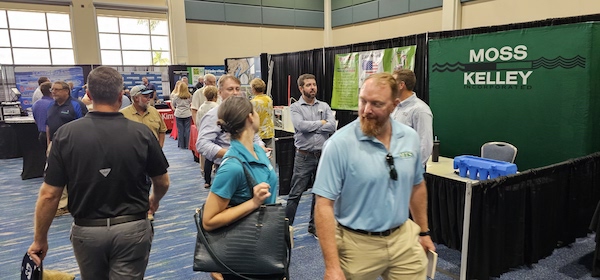
Join FWPCOA for the 17th Southwest Florida Water and Wastewater Expo, a premier event connecting industry suppliers with professionals in the drinking water and wastewater industry. Originating from a vision in 2008 by FWPCOA Region 8, this expo has grown into a vital educational and networking platform for engineers, treatment plant operators, and industry experts alike.
Since its inception, the expo has expanded significantly, now incorporating the Southwest Chapter of FWEA and FSAWWA Region 5, fostering a stronger community among local professional organizations. Last year’s event was a sold-out success, featuring 68 vendors, 21 food sponsors, and over 200 attendees exploring innovative products and educational sessions.
This year’s event, scheduled once again at the Charlotte Harbor Event and Conference Center in Punta Gorda, will be held on August 22, 2024. Stay tuned for more details on educational programs, networking opportunities, and how you can get involved.
For more information and to stay updated on the latest developments, visit the websites of FWPCOA (Region 8), FWEA (Southwest Chapter), and FSAWWA (Region 5). Don’t miss out on the premier training opportunity for local drinking water and wastewater professionals!
We look forward to seeing you at the 17th Southwest Florida Water and Wastewater Expo!

